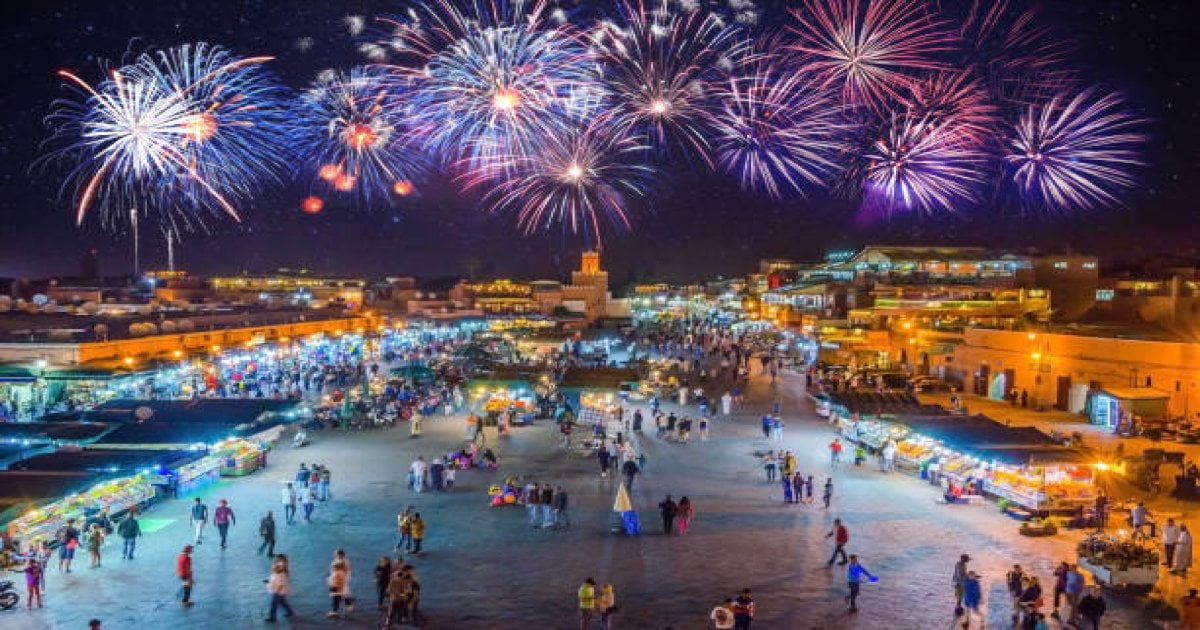Morocco Fantasia: eyood Since Moroccans have always wanted to teach and train their children in horseback riding and fighting, which developed into tabourida, or shooting while galloping with horses, it is one of the oldest and most traditional Moroccan arts that has been passed down from generation to generation for centuries.
In order to showcase the talents of their young people, families and tribes participate in a number of festivals, including Taburida, which is currently in its eleventh session of its second edition in Mansouriya, south of Rabat, and the Mansouriya Festival for traditional horsemanship.
Celebration of Mansouriya
With a more than eighty-year-old annual tradition, the Mansouriya festival is one of Morocco’s oldest horse festivals and tabourdehs. It was also known as the season of the good Wali Sidi Mohamed Al-Sharqi and Taburida. Teams from different Morocco Fantasia cities and regions have taken part, with 19 teams taking part in the current session. a distinctive travel destination for the whole of Morocco’s Kingdom.
Al-Taburida festivals are notable for their rituals and atmosphere, with teams and tribes competing in brightly colored traditional clothing, accompanied by swords and firearms, and being a crucial part of Faris al-general Taburida’s appearance. They also take part in the acquisition of the best and strongest kinds of horses that take part in the show.
The show starts with the troop riding quickly with horses and firearms known as “gunpowder,” from which the name “tabourdeh” was derived, before welcoming the audience and raising their weapons. The gold standard among the teams is the close coordination seen in the group’s attire as well as when launching and striking the explosive. The crew kept firing the powder at the same moment as the most acclaimed.
Several knights who attended the festival claimed to have occupations that have nothing to do with riding or horses. Some of them are immigrants from Europe who have spent thousands of dollars to stage this spectacle, while others are professionals such as doctors and engineers who work for the government.
One of them is Qarqur al-Khalil, a 43-year-old government worker. He revealed to “Arabi Al-Jadeed” that he appreciates the art of tabouridah, which is taught to and passed down from one generation to the next.
Which cities are the locations of the Morocco Fantasia performances?
This year, the Tebourida festival was revived by the Association Nasr for Borrowing, Culture, and Development with the goal of protecting and preserving the Moroccan cultural heritage as it is expressed in sports. For four days, from August 17 to August 21, the residents of Moulay Yacoub lived to the beat of the festival’s activities. paying attention to the rebellion and reestablishing respect for Persian lineage and horsemanship, which is an essential aspect of the true Moroccan identity and civilisation, particularly after the Ain Al Shaqaf.
The region and its tribes fared well and were present to defend the issues and the country’s fight against the colonialists given that the taborida, or as it is known in Amazigh, “invades” the art. Traditional Moroccan horsemanship, or “Taborida,” with its aesthetics of horse decoration and knightly elegance, persisted until the fourteenth century AD. The term comes from the gunpowder that was shot during the parade by the guns. The torrida was previously an equestrian and combat ritual, but it is now a ceremonial ceremony. and the knights’ fortitude.
Morocco’s Moulay Yacoub Region: A Morocco Fantasia
This festival, which fell on the same day as the Moroccan people’s commemoration of the anniversary of the King’s revolution, featured the most illustrious squadrons from regions renowned for their close ties with the Persians and their presence on the national and international levels in various forums of interest to the Persians. and the people, as well as the fantastic youth festival and the magnificent landmarks that they stand for in modern-day Morocco.
As a core, an indication of the investment of cultural heritage to serve the development in the region and the region, and contribute to the advancement of the sector Al-Falahi, the organizers bet on the interest in horseback riding and riding, which was a prominent feature bearing the traits of identity and authentic civilization, the Arab horse.
The audience, who traveled with the tribes that were fond of Persians and raised them at the location of this regional match, witnessed a number of performances of the “taborida” art form and authentic local history with the help of local horse teams.
This session was held in the region of Ras al-Ma’a associated with the Trabia community of Ain al-Shaqaf to record the cultural heritage and contribute to the preservation of local heritage and experiences, as Hassan Belmodh, a parliamentary advisor to Moulay Yacoub’s constituency, confirmed to the newspaper.

